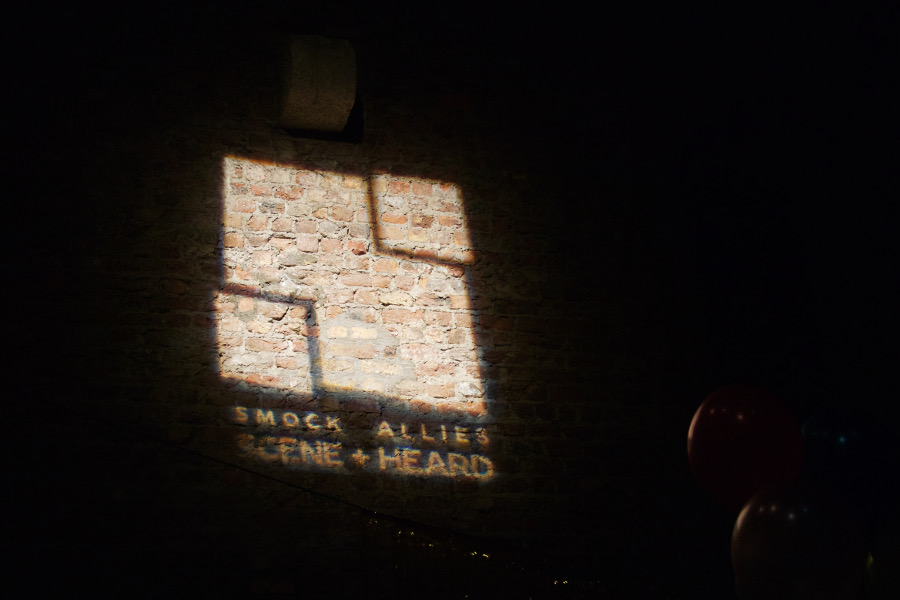
Babushka Collaborative is a new theatre company comprised of seven members: Austin Hughes, Sarah O’Sullivan, Youssef Quinn, Marcus Bateson, Rían Hamill, Ferdinand Emmett and Jade Silke-Fetherston. The original idea for the piece came out of a devised performance for a drama class. “In December 2016 we had to make a 10-minute piece based on love or migration for class”, Hughes says. The group used that piece as a base for this performance. In class, they made a piece about a game show, where participants compete to be the perfect couple. The prize is a better life. Babushka wants to take that piece and edit it, move beyond the original to make something really nuanced.
The Chased is a story about what happens when TV goes wrong, rejection of the patriarchy and how relationships form in highly pressurised situations. Despite being loosely based on the medium of television, it’s not a strictly realistic piece.
“I don’t like the word post-apocalyptic”, Hughes says, “but the performance is set in a version of the future”.
The piece contains dark undertones, making reference to eugenics and human desperation. But Babushka didn’t want to make a purely dark piece.
“We wanted to have fun making it. Babushka is a very much a collaborative organisation and the festival gives us a lot of free agency”, Hughes explains. That willingness to try different things is also present within the group itself. “Like for the most part, Sarah is writing, but if other members of the team want to try their hand at that, we’re open to that.” And what will happen to Babushka after Scene and Heard? “Maybe we’ll go on to do more as Babushka, maybe not.” It’s an emerging, malleable process. Tickets for The Chased are available online.
In the name of “bicons” like Grace Jones, Billie Jo Armstrong and Frida Kahlo, Biconic asks where is our representation of bisexuality in popular culture? The performance is about bisexuality, here defined as the attraction to “my gender and other genders”. A blend of cabaret and clowning, the piece was formed through the collaboration of two drama students Mark Ball and Jennifer Aust. The piece is currently under construction.
“People make mistakes, the process here is very much me puking on a page and then going back and looking at it with Jen”, Ball says. It’s a show about labels, but labels don’t encompass everything. It’s partially based on Ball’s experiences but it’s non-narrative. Ball explains that he didn’t just want the piece to be one person’s story, didn’t want the performance to fall into the trap of becoming just another coming out narrative. “A lot of the production team are bisexual, so we’re taking their views into account too. Intersectionality is important.”
This open attitude also extends beyond those involved in making the performance. In addition to his performance experience, Ball has a background in theatre facilitation, so he is keen to involve the audience and explore different methods of externalising emotion. The piece draws on techniques such as clowning, which is traditionally prioritised for audience involvement. This is also important. While the performance talks about more serious topics such as queer oppression, it’s also somewhat light-hearted. Ball agrees that they aren’t making a piece that’s just serious or academic. “It’s sad fun”, he says. Tickets for Biconic can be found online.






